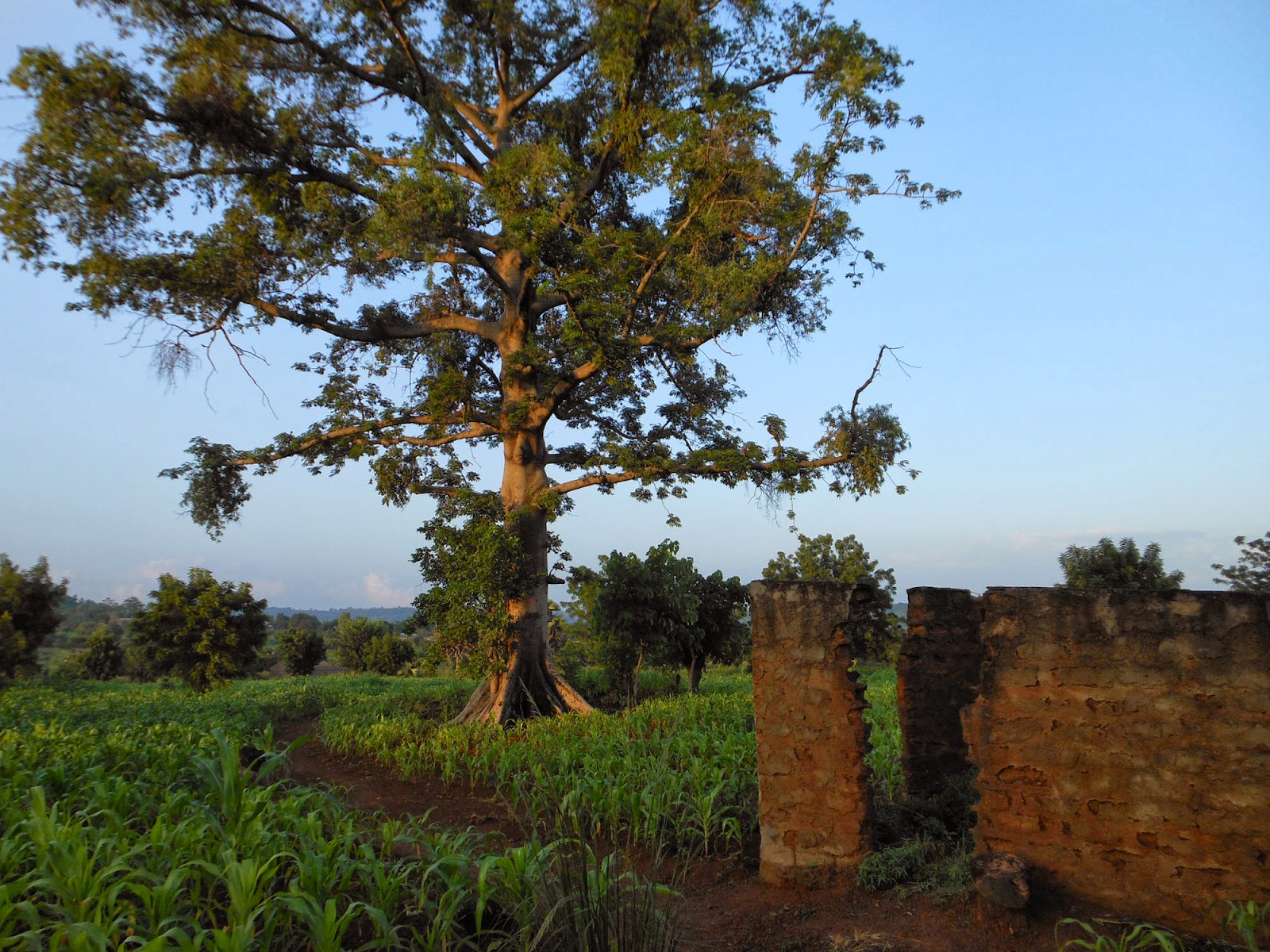When it rains, the snails surround my house. They scale the thatch and concrete walls, traverse the mud, and brave the pelting storm in search of food, friends, life, etc? Unfortunately, my knowledge of snails is limited to fragmented memories from a biology class years ago, little of substance. Fortunately, however, a lack of knowledge means a blank slate to observe and learn. The snails of Tandjoare keep shells in a variety of arresting colors: swirled mahogany browns blended with a creamy white, dreamsicle oranges giving way to deeper reds, and dusky blacks meeting gray. Some are as big my palm, while others remain petite. There’s a measured grace to the snails movements as they glide across soaked terrain, slow but almost effortless. It’s as if they have all the time in the world to find their destination and simply live, there, complete. My life flows similarly now, amidst the rain and settling in, with time moving mere inches while watched, but still somehow slipping away.
Wake up, clean (the compound and myself), and prepare / eat breakfast. Walk outside with a simple goal, such as greeting potential work partners or buying produce, and hope to discover more along the way. Some days, my excursions end early: the sun and heat being too intense, the sociable people being too few, and / or meeting only Moba, the local language, speakers. Other times, a string of events falls into place and I return home near dusk, tired but satisfied. Maybe my meeting leads to drinks afterwards, or one person I’ve met has a lot on their mind. Conversations and happenings are never too involved, if only for my French’s weakness to penetrate deeper subject matter, but anything that makes me feel integrated or more at home seems worth celebrating. Each befuddled conversation may lay the foundation for future camaraderie and work.
One afternoon, while wandering through our small market, an old woman gets my attention. Waving me over, she’s wearing a satin pink nightie, with white lace frill to match her cloudy eyes. Her near toothless smile spouting Moba, she seems unsatisfied with my basic greeting and thanks. Gesturing towards the nearby drink vendor, she becomes more and more serious. Apparently, I’m thirsty and now’s the time. I follow and sit beside her while two bowls of Tchapa, a frothy local beer made from sorghum, are passed our way. She continues talking, pausing only to drink and make sure my bowl is emptying, with others nearby laugh at our odd couple. A few men alternate sitting next to me and practice their best-intoxicated French. Where are you from? Why are you here? How’s the Tchapa? We talk as best we can and laugh, with my older companion nodding at my social and boozy progress. Tchapa stands dominate the markets of my small village and are an essential means of socializing in the community. Young, old, male, or female, everyone’s drinking there at some point. Until that moment, I’d been naively reserving my first visit for a stand that seemed unique. I hadn’t taken the time to notice that each drinking crowd, despite enjoying the same thing and similar scenery, is made unique by the people involved. Every frothy gourd carries the potential to connect with someone new, preliminary integration by the gulp.
Returning home, I dread and look forward to night as a time to reflect. The cool quiet offers peace, just as my thoughts move to end it. It often feels like I’ve done very little with each day, moved mere inches with miles left to go. I try to remain hopeful about the future and optimistic that, with each little encounter, I’m laying the foundation for something great. I try to channel those rain soaked snails in my insecure moments; gliding, naturally, as if an eternity’s offered for wherever they choose to go.




